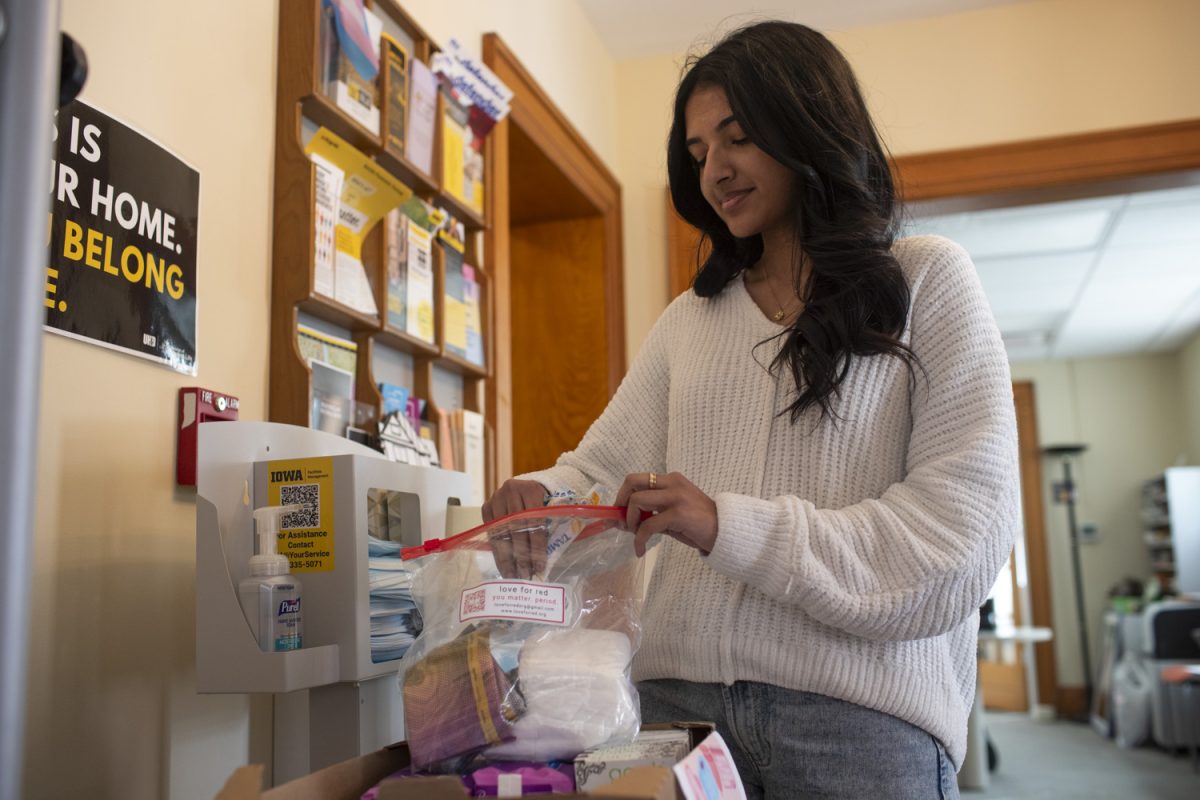Maanya Pandey grew up hearing her mother’s stories of growing up in India, where menstruation products were not widely available and periods were heavily stigmatized.
She described how women used and reused old rags, tied around their waist and under their legs, due to a lack of resources. Menstruating became a demeaning and minimizing experience.
“In general, harassment and the uncomfortableness of just having a period, everything culminating together, was just such an undignifying experience with menstruation,” she said.
However, it was not until Pandey was a sophomore in high school when she recognized period poverty — defined as inadequate access to menstrual hygiene tools and education, including but not limited to sanitary products, washing facilities, and waste management — was not just an international issue.
“I came across a post about women in prisons and the struggles that they go through as a result of not having enough period products. And that really stuck with me because, this issue, I’d only ever heard of it really being associated not with the U.S.,” she said. “That was kind of my first glimpse into seeing that, you know, this issue isn’t just in other countries.”
That was when she decided to start Love for Red, a nonprofit organization dedicated to fighting period poverty through service, advocacy, and awareness in her home state of Iowa.
Since its founding in May of 2020, Love for Red has donated over 160,000 period products to 95 organizations, including 60 schools, across the state.
Now a third-year student and public health major at the University of Iowa, Pandey has also made a difference within the Iowa City community, donating to all the middle and high schools within the Iowa City Community School District.
Ruthina Malone, president of the district’s board of directors, said access to period products is essential for students.
“I do know that it has been a concern that we have heard from some of our students at a couple of our high schools because of the price of them and just cost and not being able to easily access them,” she said. “It is a need to have those readily available in our buildings.”
She expressed gratitude, noting that removing the burden of having to pay for menstrual products has a significant impact on students.
“We are always thankful for community partners like Love for Red, who are willing to step up and cover a need they know exists in our district,” Malone said. “That cannot be said enough, how thankful I am as a board member to have partners like that.”
Aside from service and donation, Pandey also works toward advocacy and education surrounding menstruation.
OB-GYN and member of the Love for Red Committee Francesca Turner has worked with Pandey to spread awareness at the State Capitol for adequate access to period products.
RELATED: Politics Notebook | Iowa lawmakers advance bill to require menstrual products in school bathrooms
Advocating for House File 543, a bill that would appropriate state funding to provide free feminine hygiene products in half of all public school restrooms, Turner and Pandey are seeking long-term solutions to period poverty within the state.
“We know that we can’t be doing [the donations] forever,” Pandey said. “And true change and true impact will come from long-term policy change. So, we advocate every year at the Capitol, and we started doing that in 2023.”
The bill passed out of a legislative subcommittee this past month, hoping to appropriate state funds to the cause for the next three years.
Turner explained why advocacy surrounding menstruation is necessary for change and how they made a difference during their most recent legislative session by simply bringing up the issue.
“I just think people have never thought of it. It’s never crossed so many people’s minds,” Turner said.
She pointed out that only about 50 percent of the population has dealt with or will deal with having a period. Among that 50 percent, a smaller percentage is impoverished.
“It’s almost hidden because those people aren’t going to school and bleeding all over chairs, right? So, they’re staying home from school,” Turner said. “It’s like an invisible problem, unless you know about it or know to ask about it.”
Turner and Love for Red emphasized trying to prevent teens from missing any amount of education due to lack of access to products or the discomfort and stigma that can be associated with periods.
Almost a quarter of teens in the U.S. have struggled to afford period products, frequently leading to them missing school, according to the State of the Period 2023, a biannual study committed to assessing the level of stigma, access, and education surrounding periods for teens in the country.
Pandey and Turner echoed the same idea that period poverty needs to be discussed more to make real change in our communities.
“It is a very over-stigmatized but under-discussed issue. It leads people to suffer in silence,” Pandey said. “It’s that stigma that leads to shame, and then that shame directly leads to people suffering, and then people have to sacrifice, you know, their livelihood, being able to access products.”



